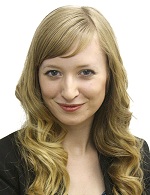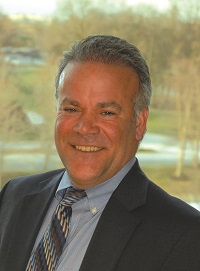 At a time when most of the biopharma industry has focused its preclinical research on screening synthetic compounds for their drug potential, Biosortia Pharmaceuticals is going back to nature to find promising compounds at the early stage of discovery.
At a time when most of the biopharma industry has focused its preclinical research on screening synthetic compounds for their drug potential, Biosortia Pharmaceuticals is going back to nature to find promising compounds at the early stage of discovery.
Dublin, OH-based startup Biosortia is harvesting the communities, or consortia, of active microorganisms found in natural aquatic environments in search of chemicals that could eventually be licensed to drug companies, similar to how penicillin was first discovered in bread mold. The company was launched in the first quarter of 2012 and wrapped up a Series A round of financing of about $1 million last November.
With Big Pharma companies scaling back their R&D spending, Biosortia President and CEO Kurt Dieck thinks his company has an opportunity to step in and fill a much-needed void.
"CEOs of drug companies have acknowledged that they can't get to where they need to get without strategic partnerships," he told FierceBiotechResearch in an interview. "Big Pharma is looking for three things--novel chemistry, potent bioactivity and new mechanisms of action."
Dieck said Biosortia's business model can deliver on all three of those.
 |
| Biosortia President and CEO Kurt Dieck |
"By bringing them those compounds instead of them figuring it out through synthetic discovery, we think will reduce the time for drug discovery by 4 years and decrease cost by $250-$350 million," Dieck said.
Dieck explained that Biosortia works on a 12- to 16-month cycle from the start of a harvest, which takes about a month and yields about 2,000 pounds of dry weight in microorganisms, to a licensable event. Using the company's proprietary equipment, Biosortia has figured out how to harvest whole collections of microorganisms in huge algae masses to screen for compounds instead of working with single organisms in a laboratory, which doesn't offer scientists nearly as much material to work with.
"The model for the last 20 years or so in pharma has been universally accepted where it's been more of a numbers game, where you screen hundreds of compounds for hits," Biosortia's chief science officer, Dr. Guy Carter, explained to FierceBiotechResearch. "That approach has really lacked the success rate that you had in the past that was looking at more complex kinds of biology."
So far, Biosortia has forged 8 academic and commercial collaborations aligned across four primary therapy areas--cancer, neurology, infectious disease and inflammation. Through an early collaboration with the U.S. National Oceanic and Atmospheric Administration, the startup has already identified 30 compounds of interest--50% of which are novel, 40% are rare knowns and 10% are commodity compounds. To date, Biosortia has submitted all 15 compounds to the National Cancer Institute, 12 of which the agency accepted for review.
The startup has also submitted roughly 20 compounds to Eli Lilly's ($LLY) Open Innovation Drug Discovery program. Dieck said it usually takes discovering 50 or so compounds before one is licensed, and the small biotech is just starting its relationship with the pharma giant. The Lilly program, which rejects more than 50% of the compounds that are submitted, has accepted 100% of the ones that Biosortia has submitted.
Most recently, Biosortia struck a research deal on June 24 with AstraZeneca ($AZN) to directly screening the company's mixtures and fractions and not wait for unique compounds. The company said this alliance demonstrates Big Pharma's level of interest in the "unique source" of its compounds and its likelihood of identifying compounds with higher potency and new mechanisms of action.
Citing a recent Deloitte Recap that found the greatest increase in licensing deals in the first quarter of 2013 was in the discovery stage--up 43% compared to the same period last year--Dieck said he's optimistic that Biosortia has a role to play in the changing R&D environment of Big Pharma. -- Emily Mullin (email | Twitter)